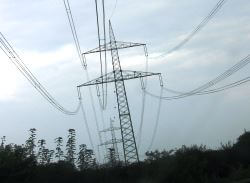 DECC have revealed that in order for the UKs energy networks to continue functioning a £41.6 billion investment by 2020 is needed,
DECC have revealed that in order for the UKs energy networks to continue functioning a £41.6 billion investment by 2020 is needed,
The report alarmingly claims that the UK’s electricity networks, the transmission and distribution system, require the bulk of the new investment in order to cope with future demand costing £34bn whilst the gas networks will require a further £7.6bn.
The news comes as reports claim that the growth in the popularity of SMEs generating their own heat and power and selling the excess commodity back to the grid was placing unprecedented pressure on the capacity and technology of the electricity network.
It is that new world approach to energy distribution and the growth in low carbon electricity that is placing pressure to invest in the networks.
The much vaunted ‘Smart grid’ network, a connected and intelligent energy nirvana, is actually hoped to reduce the required investment by anything up to £12bn however over the last four years over £16bn in investment has already been made in the electricity networks whilst the gas network has received £3.8bn.
With network costs already contributing 23% to the retail price of electricity, and growing, and 19% to the gas price, the resultant impact of this latest round of investment will undoubtedly be higher bills for businesses.
Energy Networks Association’s chief executive, David Smith said:
“Our energy networks have a strong record of delivering improved performance at a low cost to customers. This report does a good job in highlighting the challenges the sector faces if it is to build on that strong record over the coming decades.
“The innovation which is already progressing in the sector will mean that the UK’s energy networks will be delivering record investment whilst ensuring that the cost to consumers remains flat into the next decade. By investing in smarter networks the UK has an opportunity to become a world leader in the field, with the potential to deliver significant economic benefits.”
But not in the short term, the short term promises cost increases and under pressure networks coping with unproven technology.
